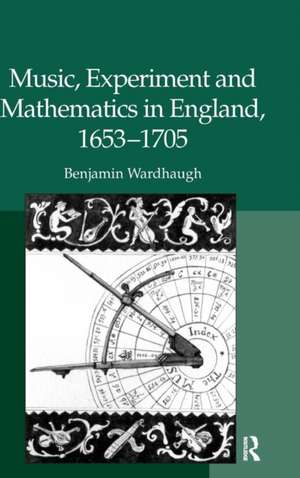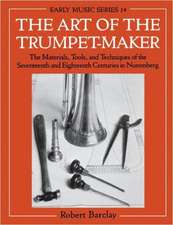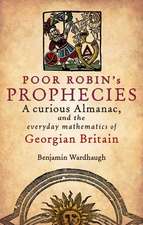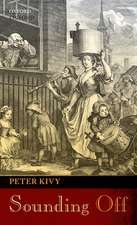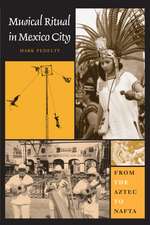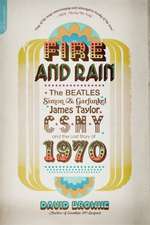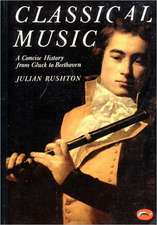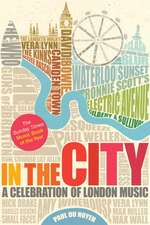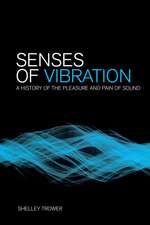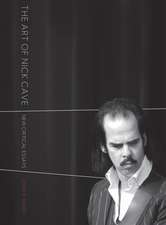Music, Experiment and Mathematics in England, 1653–1705
Autor Benjamin Wardhaughen Limba Engleză Hardback – 19 dec 2008
Preț: 1114.70 lei
Preț vechi: 1359.39 lei
-18% Nou
Puncte Express: 1672
Preț estimativ în valută:
213.33€ • 221.89$ • 176.11£
213.33€ • 221.89$ • 176.11£
Carte tipărită la comandă
Livrare economică 14-28 aprilie
Preluare comenzi: 021 569.72.76
Specificații
ISBN-13: 9780754665267
ISBN-10: 0754665267
Pagini: 222
Dimensiuni: 156 x 234 x 14 mm
Greutate: 0.49 kg
Ediția:1
Editura: Taylor & Francis
Colecția Routledge
Locul publicării:Oxford, United Kingdom
ISBN-10: 0754665267
Pagini: 222
Dimensiuni: 156 x 234 x 14 mm
Greutate: 0.49 kg
Ediția:1
Editura: Taylor & Francis
Colecția Routledge
Locul publicării:Oxford, United Kingdom
Cuprins
Contents: Introduction; From Pythagoras to Kircher; Musical pitch: discrete or continuous?; Faculties of hearing; Harmony in the mechanical world; Theories and practices; Conclusion; Select bibliography; Index.
Notă biografică
Dr Benjamin Wardhaugh, is a post-doctoral research fellow at All Souls College, Oxford, where he studies the social history of early modern mathematics. He is also working on three forthcoming volumes in the Ashgate series Music Theory in Britain, 1500-1700, and a textbook, How to Read Historical Mathematics.
Recenzii
’This book is a book of originality and value... It is the result of an enormous amount of research; Wardhaugh's ability simply to summarise so many mathematical and musical tracts is in itself a substantial achievement.’ The Consort ’... carefully researched, insightful and important...’ Mathematical Review '... fascinating ... a highly impressive study, ground-breaking in its exploration of previously unexamined material. I have greatly enjoyed reading it and will certainly return to it. It is to be recommended to anyone with an interest in the history of music and science, as well as those exploring broader contexts to later 17th-century music.' Fontes Artis Musicae
Descriere
This book constitutes an overarching history of quantitative music theory in the seventeenth century, focusing namely on the applications of mathematical and mechanical methods of understanding to music produced in England between 1653 and 1705. It begins with the responses to Descartes's 1650 Compendium musicæ, and ends with the Philosophical Transactions' account of the appearance of Thomas Salmon at the Royal Society in 1705. The book's conclusions have wide significance for early modern theories of knowledge and sensation and provides a fascinating side light onto the world of the scientific revolution.
